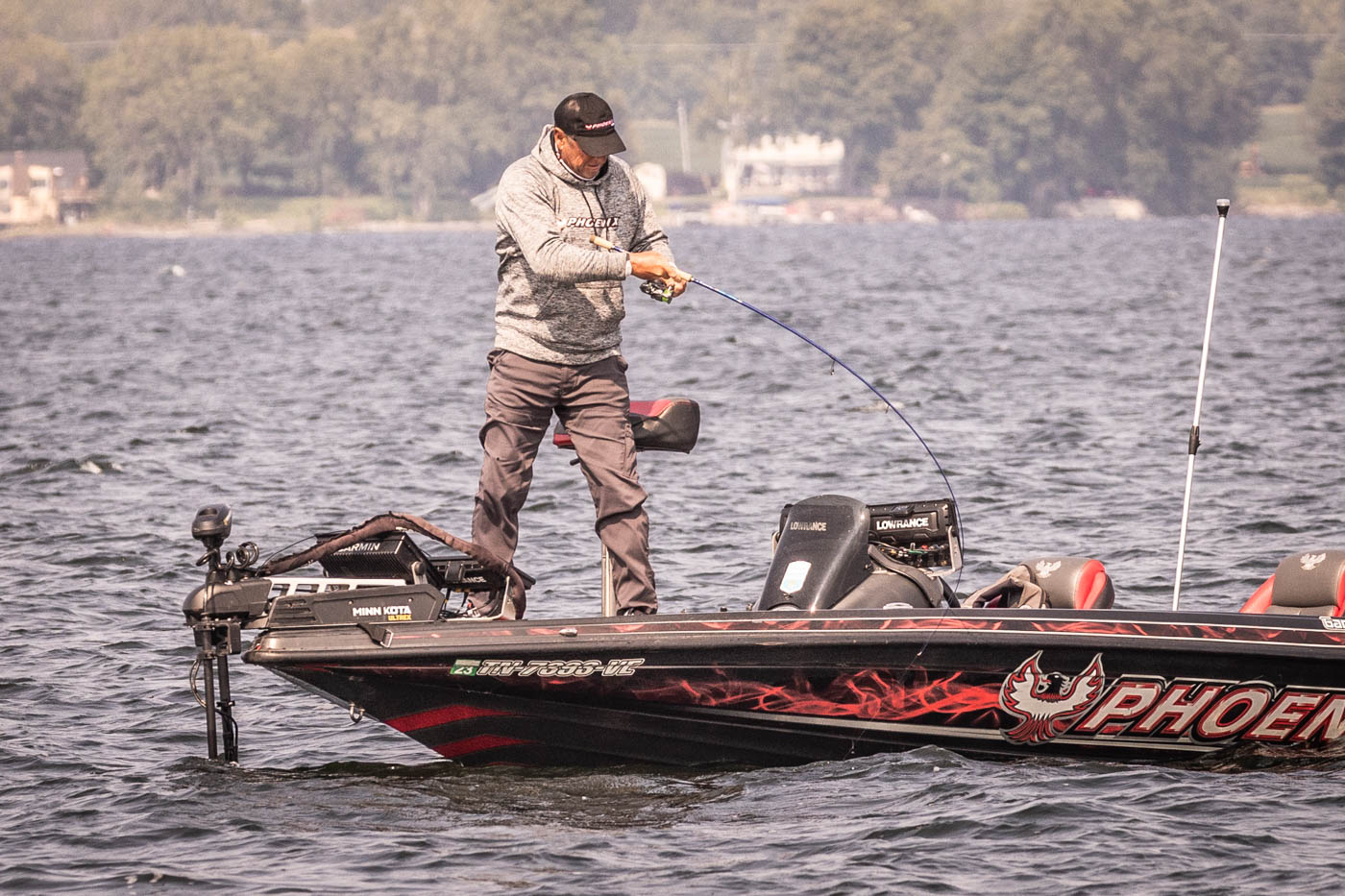
We all know the forward-facing sonar (FFS) is a major topic of discussion and controversy in bass fishing.
Who knows where this is headed, but there are facts that can’t be denied.
Let me preface this by saying I am not a FFS hater. In fact, some of my best finishes last year were a direct result of FFS. However, I love the sport and appreciate how it’s been built through the years.
My concern is for what lies in the future and how the technology has divided anglers and is possibly diminishing the instinctive side of bass fishing.
Just look at the standings over the past year in the Bassmaster Elite Series, Bassmaster Opens and other circuits. A high percentage of the wins are a direct result of FFS.
There’s no doubt it has radically changed our sport, and it’s happening on the local level as well. Friends around the country have told me that anglers in their area have figured out the technology and are dominating smaller tournaments with FFS.
Is that a good thing for our sport – or not?
An argument could be made that less seasoned anglers are finishing higher than they would without it. It takes years of experience to learn what some of the veterans know, yet those with limited experience along with FFS equipment are rising quickly to the top.
On the other hand, if I am a new up-and-coming angler doing well with FFS I might take exception to these comments as they question on my abilities. That isn’t my intention here.
I do believe, in the near future, some type of technology will come out and cause tournament organizations and/or state agencies to say, “No more.”
But where do you draw the line?
We’ve seen similar controversies in the hunting world over trail cameras, and some states have prohibited them. I’ve talked to hunters who are annoyed by those who sit at home and watch game cameras on their phone and don’t put the work into learning the nuances of hunting big game.
There are Elite anglers who feel the same way about anglers who show up at a lake, drop their trolling motor and start panning with the forward sonar looking for a specific fish to cast towards.
It’s now to the point where an angler better get good with the technology if he or she wants to be successful on tournament circuits. I know I am working on my FFS game every chance I get.
This sport was built upon the backs of versatile angling heroes like Kevin VanDam, Aaron Martens, Roland Martin and other proven champions who did it without FFS. They taught us how to use instincts and knowledge to find and outsmart a bass.
Could we see tournament wins and records asterisked during the FFS era the same way baseball has been impacted? I think not. But, for example, when Roger Maris broke Babe Ruth’s home run record, many baseball fans felt the record should carry an asterisk because Maris did it in more games. Ditto for Mark McGuire and Sammy Sosa, who broke Maris’ record during the steroid era.
Again, I’m not bashing FFS, but simply raising questions as to where it’s taking our sport.
One could argue that Roland Martin won many tournaments with basic sonar while VanDam had better sonar and Side Imaging. Does that mean Roland was better?
They fished in different eras, but ask yourself this: “Are KVD and Roland better or are today’s FFS anglers better?”
Micheal Jordan, when asked by John Thompson if he was the best ever, replied, “False. I didn’t play against all the great players prior to me, and I had them to influence my game. I would have loved to play against Jerry West to see if I was a better guard than him, but we will never know.”
No, technology isn’t an issue in basketball like it is in fishing, but I think the point is made that we will never know who is best from different eras and with different technologies.
But can you measure angling talent based upon technological usage or an angler’s ability to develop instinctual knowledge of bass behaviors? That remains at the heart of today’s bass fishing controversy, and it’s one that won’t be resolved anytime soon.





